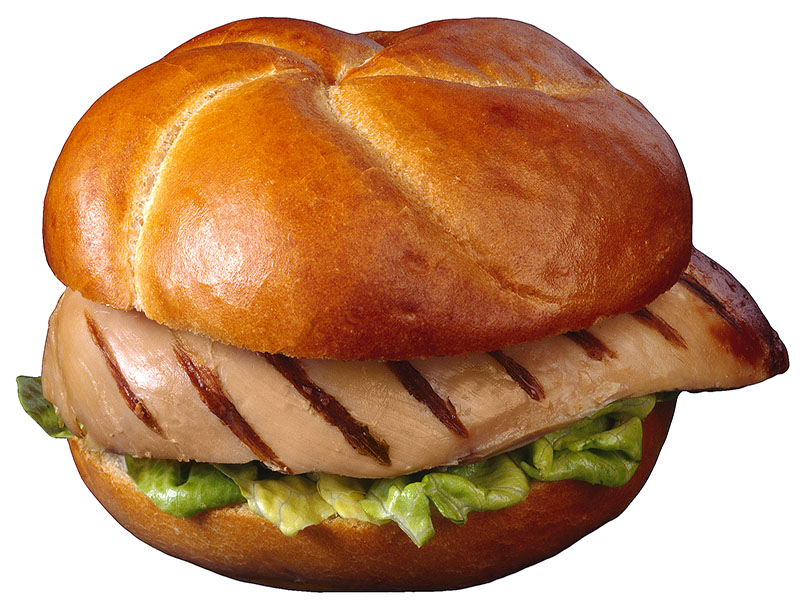By Dennis Thompson
HealthDay Reporter

MONDAY, June 10, 2019 (HealthDay News) -- One simple change in your diet -- replacing beef with poultry -- could go a long way toward curbing climate change, research shows.
Beef is the largest dietary contributor to greenhouse gases for average people, and replacing it can halve a diner's food-based carbon footprint and improve health, according to findings presented Monday at the American Society for Nutrition's annual meeting, in Baltimore.
"Basically, the top 10 highest carbon foods are all either a cut of beef or ground beef, said lead researcher Diego Rose, director of nutrition at Tulane University in New Orleans. "We can substitute that for things people would still find satisfying, in a culinary sense, and reduce greenhouse gas emissions."
For this study, Rose and his colleagues analyzed diet information from more than 16,000 participants in the nationwide health and nutrition survey conducted by the U.S. Centers for Disease Control and Prevention.
The researchers compared what people ate to the greenhouse gases emitted during production of those foods, to calculate a carbon footprint for individual diets.
The 10 foods with the greatest impact on the environment were all cuts of beef. About 20% of respondents reported eating one of these high-carbon foods on the day they were surveyed, researchers said.
The foods with the heaviest carbon footprint leave quite an impression on the planet. The top 20% of foods had almost five times more impact on the environment than the bottom 20%, Rose said.
Researchers then calculated a new carbon footprint for each diet by replacing beef with poultry -- broiled chicken for broiled steak, ground turkey for ground beef.
"When we subbed them out, we found the drop from emissions from the new diets were about half what they were before -- 48% less," Rose said.
Simulations showed people's dietary carbon footprint became smaller even though they would be eating just as much.
"We wanted to make sure the substitutions were the same calories, so we're not putting anybody on a diet here," Rose said.
There are a couple of reasons why beef has such a heavy environmental impact, he said.
First, raising cattle involves two rounds of agriculture -- first, growing feed corn for the cows, and then raising cows with that corn, Rose said.
Cows' digestive systems also are geared to draw maximum nutrition from grass, which involves digestion through a series of four stomachs, Rose said. This produces a lot of methane, which the cows expel by burping or passing gas.
One positive side effect from subbing out beef came in people's overall diet quality, as measured by a healthy eating index, Rose said.
"People's diets improved not just from the carbon footprint but the healthiness of their diet as well," he said. "It's not a lot, but it's there and it's significant. It's a win-win."
Wayne Campbell is a professor of nutrition science at Purdue University in West Lafayette, Ind. He said that the study's conclusions were "consistent with what would be expected" from replacing red meat with white.
"I like the way they did their calculations within the context of what people generally eat, as opposed to manipulating someone's diet in a contrived manner," said Campbell, who wasn't involved with the study.
But he said more research is needed.
"I don't think it would be appropriate based on the limited information that is provided here to all of a sudden say for everybody to go buy a piece of chicken instead of a piece of steak for the grill," Campbell said.
For instance, he questioned whether substituting beef for chicken would always be the healthiest dietary choice.
"For example, if the person is eating highly processed fatty sausages as their red meat and they switch to a baked chicken breast, that's going to have a much more positive impact on their health than if they were eating a lean pork tenderloin and switched to fried chicken," Campbell said.
Further studies also should examine whether people would be willing to make the suggested dietary changes, he added.
Research presented at meetings is typically considered preliminary until published in a peer-reviewed journal.
The study was funded by Wellcome Trust, a London-based biomedical research charity.
More information
The Harvard T.H. Chan School of Public Health has more about sustainable eating.
Back

The news stories provided in Health News and our Health-E News Newsletter are a service of the nationally syndicated HealthDay® news and information company. Stories refer to national trends and breaking health news, and are not necessarily indicative of or always supported by our facility and providers. This information is provided for informational and educational purposes only, and is not intended to be a substitute for medical advice, diagnosis, or treatment.






